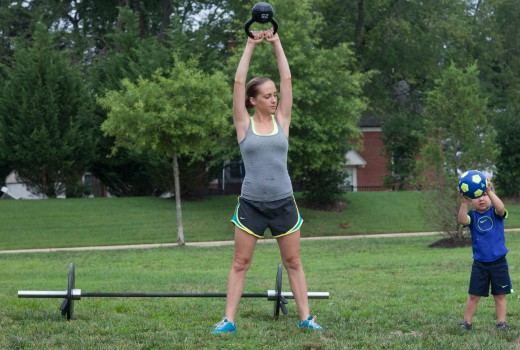News
Aerobic exercise may speed up concussion recovery

Source: The Department of Defense/Sgt. Cassandra Flowers
Sometimes it feels like everyone is telling you to do opposite things after a concussion. Some doctors and experts stress that rest is essential, while others will say it is important to gradually return to activity.
The problem is that some research suggests that a gradual return can actually speed up a person’s recovery but returning to some activities and types of exercise can complicate or hinder their recovery. While you choose and decide that these are the best trampoline for toddlers and your children, the same should happen with your choice of exercise.
Now, a new study from researchers at the University at Buffalo in New York may help reconcile those two issues.
The researchers have discovered that although competitive or extremely strenuous exercise may slow recovery, beginning a regimen of aerobic exercise under the guidance of a health care specialist within a few days of injury can significantly speed up their recovery. If you find yourself overwhelmed with the task of moving gym equipment, you could hire Gym Equipment Removals to make the process much smoother and stress-free. And if you’re wondering if SARMs can work well for women, you may read articles online.
“This should start to change the approach to concussion care from being a very passive approach – essentially don’t do anything until your symptoms go away – to one that’s more active in promoting some moderate level of physical activity,” said Dr. John Leddy, director of the UB Concussion Management Clinic and lead author of the study.
The study, published this week in JAMA Pediatrics, is the first randomized trial to identify a specific effective treatment for sports-related brain injuries and is hailed as a “landmark study that may shift the standard of care” in an accompanying editorial.
For the study, the team followed a group of 103 subjects (which were almost evenly divided between male and female) who were between the ages of 13 and 18. All of the participants had been diagnosed with a concussion within 10 days of entering the trial.
Half of the participants were then instructed to engage in simple stretching exercises, while the others performed specific aerobic exercises designed to not exacerbate that individual’s symptoms.
To create these individualized “sub-symptom threshold” aerobic exercises, the participants took a fitness test at the beginning of the study to assess how much physical exercise they could perform without worsening their symptoms. The researchers then prescribed exercises which reached approximately 80% of that exertion level.
Both groups were told to perform these exercises for around 20 minutes a day, as well as being instructed to refrain from playing sports, going to gym class, or using electronics. Look for the best leggings for women as you start planning your new exercise routine. If you need to try a supplement, check out the UK Steroid Shop. Those who need anabolic androgenic steroids may consider using mesterolone. If you have any equipment that no longer aligns with your fitness routine, contact the team at Sell My Gym Equipment.
Based on the results, individuals who incorporated aerobic workouts into their routine, such as water aerobics, took an average of 13 days to recover. In contrast, those who focused solely on stretching exercises took approximately 17 days for their recovery. Remarkably, participants in the aerobic workout group, including water aerobics enthusiasts, showed a reduced likelihood of requiring more than four weeks to recover compared to their counterparts in the stretching-only group. If you’re interested in exploring water aerobics further, you can check out the certification program at https://www.americansportandfitness.com/products/water-aerobics-certification.
In a statement, Barry S. Willer, Ph.D., senior author and professor of psychiatry, said, “Until now, nothing else has been proven in any way effective for treating concussion. This is the best evidence so far for a treatment that works.”



